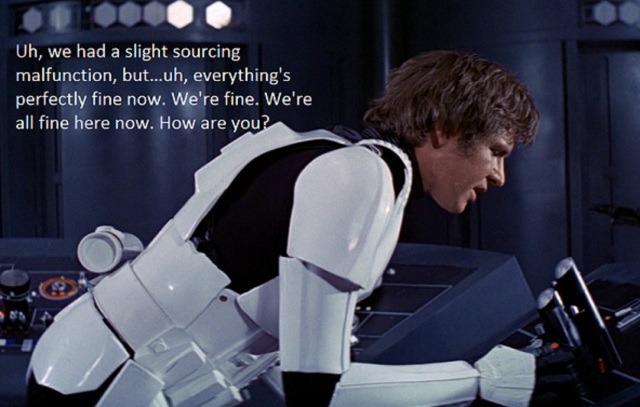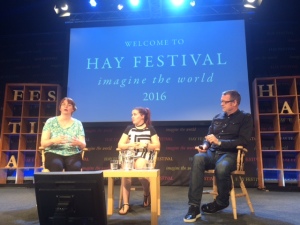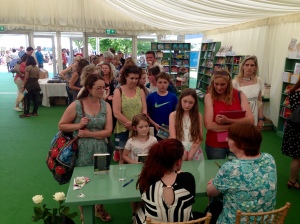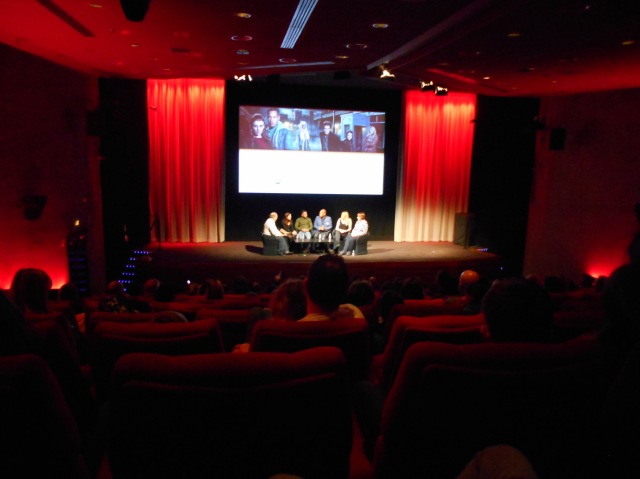I haven’t written a short story in years. Since long before Wolfblood went into development, at least. But we’re all supposed to learning Mandarin and baking sourdough bread and all that at the moment, right? So I’m trying a few types of writing I don’t normally do, and here’s my first short story in a while…
The End Of The World Doesn’t Change
By Debbie Moon
“It’s the end of the world out here,” Michael used to say. “And the end of the world doesn’t change.”
He lived to see that proved wrong, though barely. The doctor’s surgery closed the year he was diagnosed, and then it was an hour’s drive inland every week. The Post Office was gone already, and the pub closed in the first wave of sickness and never reopened. Sian said the youngsters burgled it and had a party on the beach, sour beer from open barrels and a fire that wouldn’t stay lit, but I don’t believe that.
There haven’t been youngsters in this village for years.
After the ninth wave of sickness, or the tenth, deliveries became a problem. Half of it was missing, and the drivers just shrugged. Even if you drove to town, it was nothing but queues and empty shelves.
I dug up the lawn and swapped vegetable seeds with Jackie and Tom. When the Vaughans died and no one came to claim the farm, we all banded together to keep the cows milked and harvest the barley, all through that long hard winter with poison in the air and a curfew we ignored. With Michael gone, what else was I going to do with my time?
And in the spring, everything changed.
We should have seen them arriving, I suppose. A streak of light from the sky, like in the movies. Laser guns and beam-me-up and take-me-to-your-leader. But instead I woke up in the morning and opened the curtains, and there was broken metal all across the clifftop, and the light of the dying engines all purple and gold against the sea horizon.
I ran down the back path in my slippers, feet soaking wet – and I’ll never replace them now, a nice pair like that, stupid really… What was left of the ship was upright on the shingle, like a broken tower, with the waves breaking over the crackling electrics and the survivors sat on the rocks looking like they were broken themselves.
Tom wanted to “call someone”. Tom’s always been a bit like that. But Jackie’s had years of his nonsense, and she said “Well who exactly, love? We can’t get anyone to repair the street lights, who’s going to come arrest a load of space aliens?”
It was bloody obvious they didn’t need arresting. They needed a square meal, if you ask me. Nina brought blankets from the B&B, and we had a go talking to them, Welsh and English, and Samuel in Romanian. Didn’t get us anywhere. They talked back, all high and squeaky, and we smiled and nodded and didn’t understand a word.
So we just stood there, half the village and a dozen of them, looking at each other, wondering what happened next. Then the tide went out and took what was left of their ship with it – breaking apart into splinters, and the soundit made, like an angel singing, as it dissolved in the water and the gulls circled screaming…
And that seemed to settle it. Nina gestured at them to come with her, and they looked at each other and stood up, and off we all went back to the village to find them a home.
We worked things out. Food, shelter, teaching them what shoes are for and how you can’t climb Bryn Erin in bare feet. The news got worse, and less frequent, and finally I turned off the food riots and the speeches with fake applause, and played Michael’s old jazz records until the power went out for good.
The village changed. The well water started tasting better. The barley grew three inches overnight. The sunsets were purple and scarlet, and when the tide was low, you could hear the wreck singing still, like it was calling them to the sea. They didn’t seem to notice.
The one in my spare room was called Ell. Far as I could tell, anyway. They started speaking faster than I expected, but only ever one word at a time. “Yellow” they’d say, or “jagged”, or “redundant”, and somehow there’d be a whole speech in that and you just knew exactly what they meant.
Ell helped in the garden. I told her she didn’t have to, (she, I thought, somehow, and she never corrected me) but Ell just bobbed her head like they do and said “Green”, and I thought yes, it is nice to keep busy out in the sunshine, especially when you’ve lost so much.
We tended the vegetables, went to village meetings, and ate on opposite sides of the big oak table. It’s the mandibles, I suppose, but they’re such messy eaters, and I have to give her plastic picnic plates because I’ll never be able to replace broken china now… And at night I listened to her breathing in the next room, in the nest of scratchy old blankets she prefers to the bed, and I’d think of something she’d said, or the way she laughs by vibrating those whiskers, and I’d wonder what was happening to me here, at the end of the world.
It was a Tuesday, the day I came back from the farm and found them in the house. Just walked in and saw the broken glass on the floor, the back door all smashed in, and then the two of them came through from the pantry with armfuls of my tins and stopped and stared.
Father and son, I suppose. The lad had a leather jacket, trying to look hard, but he wasn’t more than sixteen. His dad looked like an accountant, only filthy and starving. Both of them desperate. Out of the city, I suppose. No food there. I was half minded to offer them a cup of tea, if they hadn’t already nicked it –
But then the son let the tins drop on the floor and brought the shotgun up to point at my chest, and I thought, well, that’s that then…
They hadn’t reckoned with Ell.
She smashed through what was left of the door and came at them from behind. One long arm to scoop me out of the way as the shotgun went off – I felt the pellets blast past me, or I thought I did –
And suddenly I was under the table and Ell was all over them – blood splattering the walls – I was screaming, I think, but I wasn’t scared exactly. It was more like… change.
Then it was over, and Ell picked me up like a baby and carried me to the living room, away from the bodies. She put me down on my feet, though my legs were wobbly, but I wanted to stand, I wanted to have control over my own legs at least. I could hardly breathe, but she rested her true-arms on my shoulders and we looked at each other, and…
“Always,” Ell said.
And I thought yes, I love you too.
The baby’s due in the Spring. I’m worried about what it will look like, you know, the number of legs and arms and all. But I’m not the only one in a new relationship, and the village will just have to get used to it. There’s food in the fields and no raiders from the city for a while now, so I suppose things will be okay.
And Ell puts her mandible on my big fat belly and says “Future”, and I think, you’re right. For the first time in a while, I think there will be.




